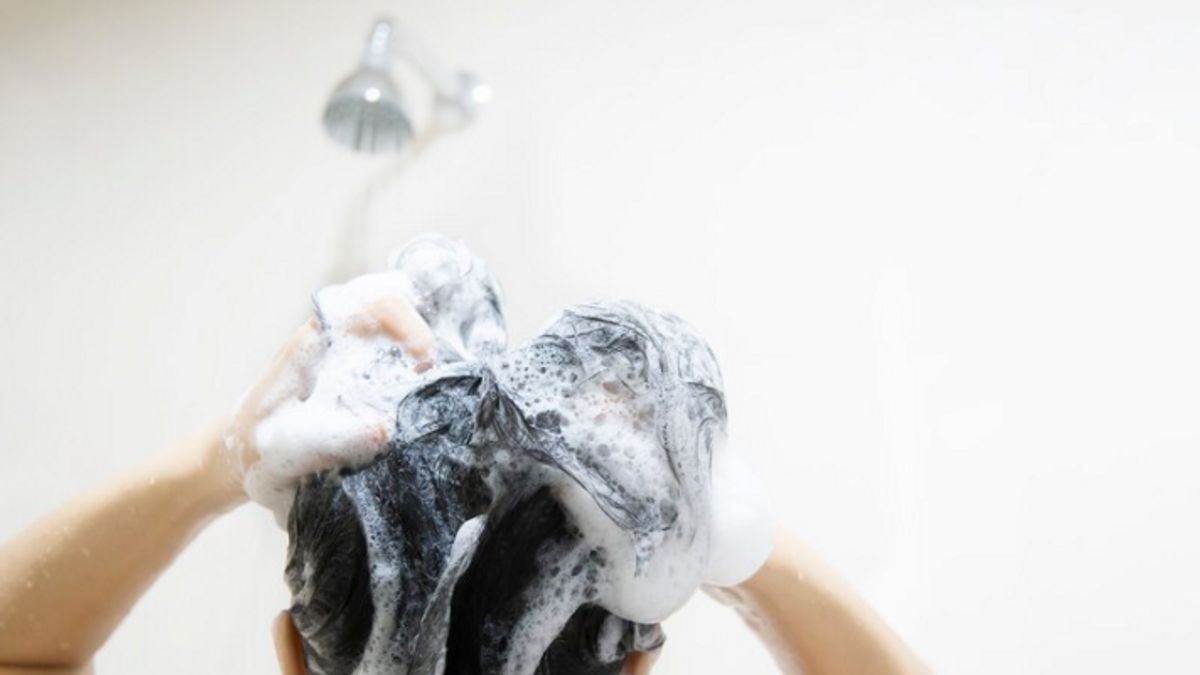YOGYAKARTA - Among them are many myths about things that invalidate fasting, one that is often questioned is the law of shampooing during fasting. Often a person has to shower during the day while fasting, including doing shampoo.
Bathing or wetting the body during the day during the month of Ramadan, does not mean to be fresh and not hot or hot. However, it is often time for someone to take a shower or wash their hair during the day, either because they wake up late or they will travel.
Until now, there are still many who wonder whether shampooing cancels fasting? Actually, the things that break the fast have been explained, namely eating and drinking, having sex, issuing manifolds intentionally, and other causes. So what is the law of shampooing when fasting that Muslims must understand?
Regarding the law of shampoo during fasting, there are various views from the ulama and based on religious references. This knowledge is important for Muslims to understand because the matter of shampooing during fasting is still a debate until now.
According to the views of most scholars from various schools (Syafi'i, Maliki, Hanafi, and Hanbali), someone who is fasting may bathe during the day. However, with a note in the bathing activity or shampooing, there is no intention of breaking the fast. No water enters the body through the mouth hole, nose, or ears.
SEE ALSO:
There are several hadiths that explain the provisions of bathing and shampooing during fasting and whether breaking fasting. One of them is a hadith from Aisyah RA narrated by Imam Bukhari and Muslims, as follows:
From Aisyah RA said: Rasulullah SAW poured water on his head when he was fasting because he was very hot or very angry. (HR. Bukhari no. 1926 and Muslim no. 1112)
The hadith shows that the Prophet SAW once bathed during the day while fasting. The Prophet poured water over his head to cool his body without breaking his fast.
The history of Bukhari Muslim also mentioned that the Prophet had showered at dawn during the fasting month. Here's the sound of the hadith:
"Nabi salallahu alaihi wa sallam once poured water on his head while fasting, because he was lazy or too hot." (HR. Ahmad 16602, and prayed for Syuaib al-Arnaut).
If referring to the hadith, it is permissible for people to fast for bathing, bathing, diving, or pouring water on their heads while fasting. However, with the limit there is no intention of breaking the fast, for example drinking water on purpose.
Bukhari also narrated how the Prophet wetted his head with water while fasting. The following is the sound of the hadith:
"Ibn Umar radliallahu anhuma once wetted his clothes and he placed them on his head while fasting," (HR. Bukhari ululaq, 3/30).
If you stick to some of the hadiths above, then shampoo does not break the fast. The law of shampooing when fasting is allowed or not canceled. As long as you can guarantee that no water enters the body through the mouth hole, nose, or ear.
So that shampooing activities do not interfere with fasting, there are some tips for shampooing that you need to apply. Here are some tips for shampooing during fasting so as not to cancel:
Make sure when shampooing no water enters the body. By keeping the water from flowing into the holes such as the mouth, nose, or ears, fasting remains valid and does not cancel.
Be careful and not excessive so that no water enters the body's hole. It is better not to water directly on the body. You can slowly wet your hair using a dipper or use a wet cloth for certain parts.
That's a review of the law on shampooing during fasting. Doing shampooing does not include breaking the fast. Fasting remains valid as long as you can guarantee that no water enters the body's hole. Also read whether crying cancels fasting.
Stay up to date with the latest domestic and other overseas news on VOI. We present the latest and updated information nationally and internationally.
The English, Chinese, Japanese, Arabic, and French versions are automatically generated by the AI. So there may still be inaccuracies in translating, please always see Indonesian as our main language. (system supported by DigitalSiber.id)


















